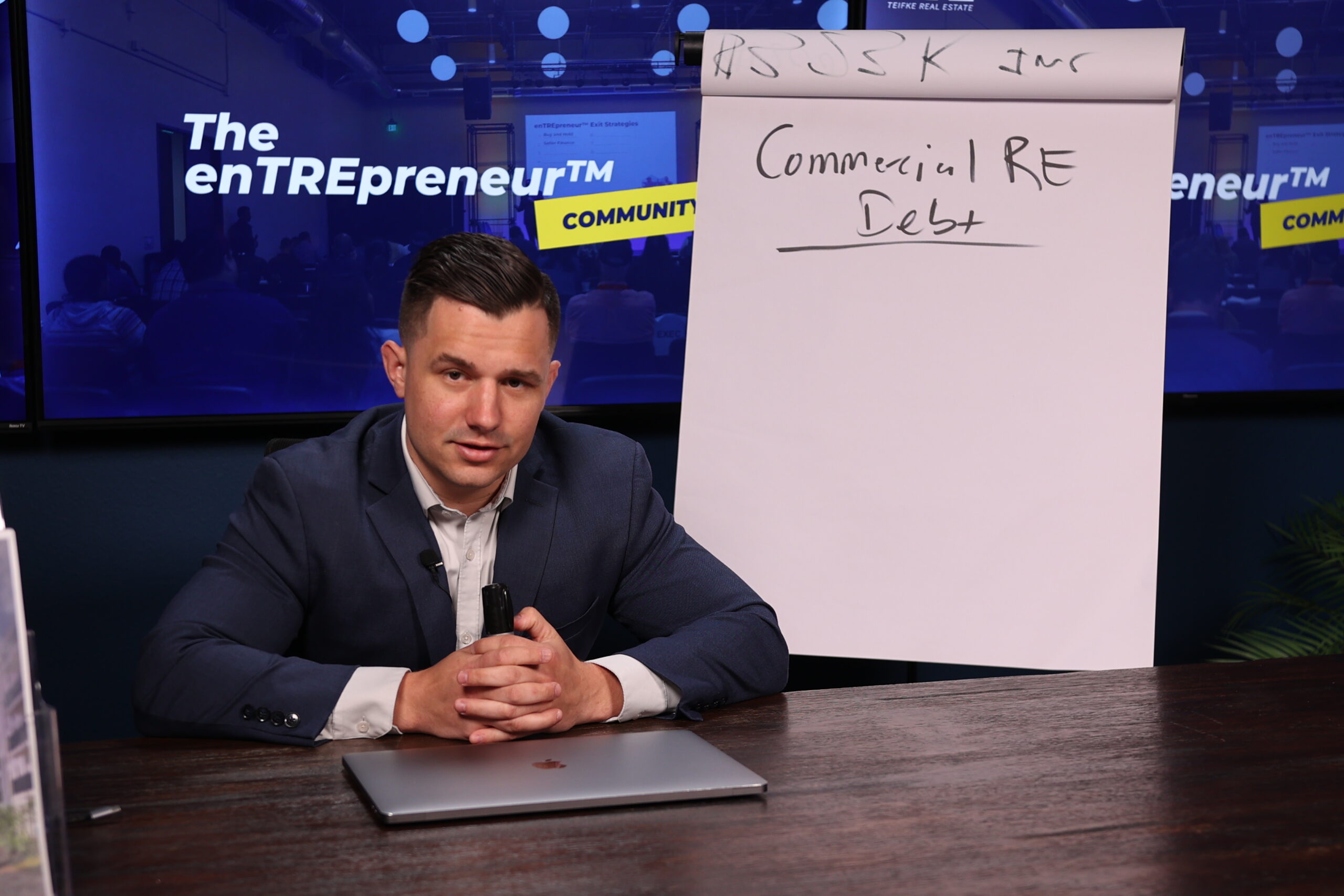Table of Contents
Most people have heard that real estate is one of the most stable investments you can make, but the historically high barrier to entry when it comes to real estate investing has made it difficult to take advantage of the market.
Good news, that’s changing, fast!
There are more opportunities and ways to invest in real estate than ever before, and real estate investing is getting easier and easier whether you’re a seasoned investment professional or just a regular consumer looking for new ways to earn income and build wealth.
Let’s talk about how you can start making money through real estate investing, what you need to understand before you get started, the different styles of real estate investing, and the many different types of investments you can make in the modern real estate market.
What To Consider When You’re Getting Into Real Estate Investing
Before you get started with real estate investing it’s important to know what you’re getting into and to have at least some basic understanding of your local market, financial situation, and what kinds of investments you should be making.
Some of this comes down to your personal finances, can you afford to buy real estate without financing? If you’re financing through a mortgage or other loan, what are you putting up as collateral? How much are you willing to invest, and do you want to start big or small?
But these are the kinds of questions all investors should be asking themselves, so let’s look at some of the factors more specific to real estate.
Risk Tolerance
There are a lot of different levels of risk in real estate investment. The larger your personal investment the greater the average risk.
For example, there is a big difference between REIT investing, where you buy shares in a real estate trust and receive dividends from the properties in that trust, and buying your own multi-home real estate for rental.
That said, the higher the risk the bigger the rewards, and often also the workload. In real estate, a lot of the low-stakes investments also require the least work from the investor. That means that part of your risk tolerance calculation needs to include how much time you can spend dealing with your real estate investments directly.
Local Market Conditions
Understanding real estate markets is one of the critical first steps you should take if you want to get started in real estate investing.
Knowing the markets, including where people are migrating, which markets have low or high housing stock when real estate was developed and what condition it’s in, and the natural disaster risk of any given market is critical to making good decisions about where to invest.
It’s also worth looking into the best states to invest in real estate because those states are going to offer better average performance and are a good long-term bet.
While there is both short- and long-term types of real estate investment, if you’re considering buying rental property or want to make money by building equity in real estate, you need to know where to buy.
Investment Liquidity
With other kinds of investments, the liquidity of your investment is a little less important than it is when it comes to real estate. Often, when you invest in real estate that money is no longer liquid, and it’s much harder to sell properties than stocks.
That means that you should think about whether physical real estate or real estate funds or crowdfunding, where your assets are potentially more liquid, is right for you.
Passive Vs. Active Real Estate Investing
We’ve already touched on this a little, but it’s also important to think about how active you want to be in real estate investing.
Rental property investments are typically more active form of investment than a fund or participating in crowdfunded real estate investments. Passive real estate investing allows you to make money with very little active participation in maintaining or growing the value of your investments.
On the other hand, investing in land, starting a real estate property management firm, or flipping houses are all more active forms of real estate investment that generally require a lot of active participation from the investor.

Creating Regular Income Through Real Estate
Let’s talk about different ways to build real estate income. This isn’t a complete list, instead, we’re going to cover some of the core concepts so you can get a better idea of the different options in real estate invest.
Increasing Property Value
Increasing the value of properties, you own is one of the core ways you can make money in real estate. This can be part of building real estate equity, or as part of a real estate investment strategy to turn properties into profits.
Fix And Flip
One of the most well-known ways to generate income in real estate is to buy properties that need an upgrade or a renovation, creating a budget for those upgrades, improving the building, and then selling it for more than you paid to get it in the first place.
This is a work-intensive method regardless of whether you do the upgrade work yourself or pay someone else to do it for you.
However, if you’re good at this, it can be a solid way both to generate income and to help buildings and previously developed real estate come back into the local stock of real estate instead of being torn down or replaced with new construction.
Development
Another way to add value to properties is to develop land or to add to an existing development. Like fix-and-flip plans, the goal of this kind of real estate investment is to spend less than you can potentially make on the project, which means you need a keen understanding of construction costs, local demand, and how to market your project to potential buyers.
Regular Income Through Rentals
Another way to create income through real estate investment is to buy and manage rental properties. There are a lot of different kinds of rental properties out there, from office space to multi-family homes, to strip malls and retail spaces.
Knowing what kind of real estate is in demand in an area is critical to making this kind of real estate investing work, not only because you need to be able to spot properties that are a good rental prospect, but also because you need to be able to appropriately price the rental so that you will get a reasonable profit without long slumps between renters.
Multi-Family Real Estate
One of the most common kinds of rental income is landlords who own multi-family real estate. Think, duplexes, apartment buildings, and condominiums.
Any structure that is designed to comfortably house more than one family is a multifamily property, and this is often the first thing people think of when they think about getting into real estate investing.
It’s also where a lot of investors start and stop their real estate journeys, which is perfectly fine depending on your goals and why you got into real estate in the first place.

Indirect Real Estate Investing
So far, most of what we’ve talked about has been direct real estate investing. Where you invest directly in properties, rather than in groups of properties in a trust, or in a real estate project rather than the property itself.
There is also indirect real estate investing, which is often lower risk and more passive compared with direct real estate. Here are some examples.
Real Estate Investment Trusts, REIT Investing
REITs are trust that own multiple commercial properties, and either directly manage those properties themselves, or use a portion of the income from those properties to pay a management company. Investors buy shares of the trust, and receive dividends from the profits on each property.
This is a low-risk option, and also generally requires less investment than direct real estate investment. REITs are a common component in retirement investments, but you can take advantage of these real estate investment opportunities at any point.
Real Estate Investment Groups
Real Estate Investment Groups are similar to REITs in some ways, but they are generally more complex, more unique, and better for experienced investors that can evaluate the relative risk to reward potential of the investment.
Real Estate Investment Groups have unique structuring, so if you’re considering investing in one of these you’ll need to learn more about how they function and where you would fit in its investment strategy.
Mortgage Investment Corporations
Mortgage investment corporations are also similar to REITs, but instead of properties they hold mortgages and rent out the properties in question. Investors get paid on the interest from rental payments.
Other Kinds Of Real Estate Business
There are plenty of other ways to get involved in real estate. At Tiefke Real Estate we want to help you with any aspect of your real estate business and investing, no matter what path you choose. Here are some examples of other kinds of real estate you might be interested in.
Property Management
Property managers are the people who do the day-to-day management of actual properties. Things like scheduling maintenance, collecting rent, dealing with tenant concerns, and finding new tenants when leases lapse.
Companies can own the properties they manage, or they can sell their services to property owners.
Real Estate Agency
Real estate agents are the people who connect real estate customer with real estate sellers. Their job is to help people find the right properties for their needs or to help sellers market their properties in a way that attracts the right kind of buyer.
Want To Take The Next Steps In Real Estate?
If you’re interested in learning more about real estate investing or want to learn more about what investment options are right for you, or accessible with your budget, contact Teifke Real Estate. We’re happy to answer your questions, provide coaching, and teach you how to navigate real estate investing for yourself.






